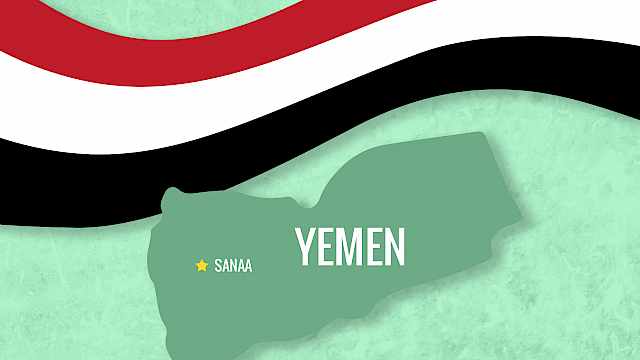Introduction
It is widely accepted that the prevention of violent extremism requires a ‘whole of society’ approach, as pathways in and out of extremist violence are influenced by complex interactions of individual, group, socioeconomic, and political factors.
A ‘whole of society’ approach to prevent violent extremism rests on sustained coordination between actors who previously may have had little mandate, interest, or opportunity to cooperate. Increasing interest in the integration of mental health and psychosocial support (MHPSS) in extremism prevention, extremist rehabilitation, and social repair efforts adds further nuance and challenge to the effective ‘whole of society’ mobilisation.
Importantly, in many places around the world that struggle with extremism, security sector actors and actors involved in mental health and psychosocial support rarely interact, and each sector independently has resource, capacity, and quality concerns that prevent meaningful integration.
The Role of MHPSS in PVE
There is no question that psychosocial and mental health issues should be factored into our understanding of radicalisation into extremist violence. Various studies and reports document how adverse experiences (e.g., childhood abuse or life-altering events in adulthood) can contribute to later mental health struggles which interact with other risk factors, leading to violent extremist behaviour. In no way does the data suggest that mental disorders or psychological and emotional struggles cause extremism. Instead, such struggles form part of the landscape of risk and vulnerability, and as with other push factors like poverty, joblessness, or poor governance, adverse experiences and their effects on mental health should be considered and addressed meaningfully in ‘whole of society’ extremism prevention strategies.
If we accept adversity and mental health as risk factors, then mental health support should be rightly and deliberately made part of violent extremism prevention efforts.
If we accept adversity and mental health as risk factors, then mental health support should be rightly and deliberately made part of violent extremism prevention efforts. Similarly, the assessment of psychological, social, and emotional health must then also be incorporated into assessments of risk and resilience in PVE efforts. Importantly, social and psychological health interventions carry unique risks, often different from those associated with programmes that attempt to reduce other risk factors like joblessness, poverty, and low education. Furthermore, MHPSS interventions raise important questions about the relationship between governance, human rights, and health. And lastly, the practical cooperation between health and security sectors risks the securitisation of psychological distress and the violation of healthcare ethics, thus complicating efforts.
Existing Frameworks
The integration of MHPSS in the prevention of violent extremism is facilitated by the availability of existing, evidence-backed frameworks for strengthening MHPSS in humanitarian and health assistance practice. Predominant global models for MHPSS service delivery advocate tiered approaches that strengthen national systems while investing resources and capacities in communities directly. Most globally-adopted frameworks affirm that a significant amount of mental health support can and should be provided in community settings by trained non-professionals, facilitating the integration of mental health care in other community activities. At the same time, community-level efforts should sit alongside, and in fact support, the strengthening of formal mental health care delivered by professionals in both primary care and speciality settings.
Existing frameworks for scalable MHPSS activities in emergency and development contexts offer broad guidance on the types of possible interventions, useful outcome measurements, and safety and referral standards. That said, there is limited direction and guidance available for those attempting to centre MHPSS within PVE specifically, and PVE as a practice has unique considerations and challenges that reduce the utility of existing MHPSS frameworks.
Leveraging new guidance from the United Nations Development Program on the integration of MHPSS in Peacebuilding, Beyond Conflict (beyondconflictint.org) has been working with UNDP country offices to elevate the role of MHPSS within PVE practice in Central Asia. Central Asia has quickly risen to prominence in discussions on PVE largely due to their groundbreaking efforts to repatriate ISIS-affiliated citizens. Efforts to integrate MHPSS activities in both prevention and rehabilitation efforts has highlighted significant challenges that can and should be addressed by international organisations, national governments, and multinational coordination bodies in order to make more effective the use of MHPSS tools, activities, and outcome measurements in PVE.
Challenges in the Integration of MHPSS in PVE in Central Asia
There is a dearth of evidence as to the effectiveness of MHPSS interventions for PVE outcomes.
Whereas we have seen decades of investment in developing and testing scalable mental health interventions to address the effects of mental illness, trauma-related distress, and psychosocial challenges in post-conflict settings, and have witnessed long-term efforts to strengthen mental health care systems under long-term health assistance schemes, there is limited evidence or guidance on how to design or evaluate MHPSS activities intended to enhance PVE outcomes, specifically. Similarly, there is limited evidence directly linking mental health and psychosocial indicators with violence prevention indicators. As such, there are still major gaps in knowledge as how MHPSS efforts can enhance the prevention of violent extremism in vulnerable communities. Furthermore, translating recent findings into accessible, actionable insights for practitioners remains a significant challenge.
It is critical that practitioners offering MHPSS activities as part of PVE efforts recognise the limited evidence base from which they are operating.
The integration of public health in security issues risks stigmatisation and profiling of vulnerable individuals.
While there is a significant push for the integration of MHPSS in PVE efforts, any efforts to share MHPSS insights and tools must be made carefully, especially when involving security sector actors. Security sector actors often need to be ‘convinced’ of the importance of integrating MHPSS in PVE plans and activities, yet the misrepresentation of the role of mental health in radicalisation or the role of MHPSS in PVE activities can backfire, leading to the stigmatisation or unnecessary profiling of individuals with mental health or psychosocial challenges. Practitioners involved in capacity building and multidisciplinary coordination must strike a delicate balance between elevating the role of MHPSS in PVE practice and minimising the role of mental health factors in security risk assessments.
Formal and professional mental health care is often limited in conflict-affected environments.
While it is critical to coordinate with and strengthen existing professional mental health care structures in any context, there is incredible diversity in how national and local systems of care operate and the standards of care provided. Similarly, the education, accreditation, licensure, and supervision of local psychologists, social workers, and mental health professionals (however accredited) differ from country to country, thus resulting in dissimilar knowledge bases among practitioners in the same region. Finally, it is rare, even in highly developed countries, to encounter mental health professionals with any working knowledge on the necessary nuances and challenges of working with ideologically extremist populations.
Mental health stigma is a major challenge and requires innovative, culturally appropriate solutions.
MHPSS actors often confront high levels of stigma towards mental health issues and associated interventions. In some cases there is a clash between religious ideologies and secular models of mental health care, thus leading to hesitance and resistance to participate. Additionally, mental health stigma may manifest as concern over public perception of participating in MHPSS activities or internalised feelings of shame for having sought care.
Access, recruitment, and retention of the most vulnerable complicates MHPSS efforts for PVE.
MHPSS interventions that have worked in humanitarian emergencies or in development assistance settings may not work the same way when offered to the populations often targeted by PVE interventions. While some PVE interventions focus generally on building resilience among any and all members of a community, other programmes target individuals previously identified as ‘vulnerable’. It is critical that practitioners offering MHPSS activities as part of PVE efforts recognise the limited evidence base from which they are operating and undertake meaningful consultations with target groups in order to adapt possible interventions.
Reasons for Optimism
While there are numerous challenges to the meaningful integration of MHPSS in PVE in Central Asia and beyond, there is also reason for cautious optimism. Public discourse, political will, and donor resources are shifting to enable a mental health and psychosocial wellbeing approach to tackling extremism and other conflict challenges. The UN Development Programme’s latest Human Development Report affirmed this trend, dedicating significant attention to the nexus of psychosocial health and cycles of conflict and suggesting that addressing mental distress is critical to development and progress.
Many states grappling with extremism challenges are opening space for MHPSS programmes.
For example, the Government of Kyrgyzstan, with international support, has undertaken reforms in the criminal justice system, opening space for psychological support staff within a newly-minted probation department. While Kyrgyzstan’s reforms leave room for important questions on human rights and fair application of criminal justice, the opening of new spaces for MHPSS within national frameworks should be appropriately supported and resourced in Krygyzstan and elsewhere. And while a wildly different context, the Department of Homeland Security in the United States continues to fund local mental health and psychosocial support initiatives as part of its Targeted Violence and Terrorism Prevention Grant Program. Simply, it is encouraging to observe the increasing space for MHPSS activities to contribute to national PVE goals in various contexts.
The de-exceptionalisation of violent extremism vis-á-vis other forms of violent crime creates new pathways for engagement with multidisciplinary actors.
Beyond Conflict has worked closely with the US Institute of Peace and other civil society actors to shift discourse and programmatic guidance in a way that centres on a public health approach to violent extremism prevention and rehabilitation while recognising the unique challenges of ideologically-motivated violence as compared to other forms of violent crime.
While violent extremism is a unique form of violence that must be confronted with nuance and close attention to ideology and identity factors, it sits alongside other forms of violence and should thus be treated with a whole of society, multidisciplinary approach that appreciates (instead of sidelines) the role of the security sector while elevating the importance of non-security actors in prevention. By collaborating more closely and listening to actors with decades of experience in disarmament, demobilisation, and reintegration (DDR), youth violence prevention, and restorative justice, civil society actors continue to find better ways to work with governments and to place PVE within broader peacebuilding efforts.
Michael Niconchuk is the Program Director for Trauma and Violent Conflict at Beyond Conflict. He is a practitioner and researcher at the intersection of violence prevention, trauma recovery, and forced migration and is the author of The Field Guide for Barefoot Psychology.
Read more
Altier, M. B., (2021). Violent Extremist Disengagement and Reintegration: Lessons from Over 30 Years of DDR. Washington, D.C.: RESOLVE Network. https://tinyurl.com/3wntuvp8
Corner, E., Taylor, H., Van Der Vegt, I., Salman, N., Rottweiler, B., Hetzel, F., Clemmow, C., Schulten, N., & Gill, P. (2021) Reviewing the links between violent extremism and personality, personality disorders, and psychopathy, The Journal of Forensic Psychiatry & Psychology, 32:3, 378-407. https://tinyurl.com/4m4da2an
Gill, P., Clemmow, C., Hetzel, F., Rottweiler, B., Salman, N., Van Der Vegt, I., Marchment, Z., Schumann, S., Zolghadriha, S., Schulten, N., Taylor, H., & Corner, E. (2021) Systematic Review of Mental Health Problems and Violent Extremism, The Journal of Forensic Psychiatry & Psychology, 32:1, 51-78. https://tinyurl.com/56u8hv67
Inter-Agency Standing Committee (IASC) (2007). IASC Guidelines on Mental Health and Psychosocial Support in Emergency Settings. Geneva: IASC. https://tinyurl.com/yc5budjz
IOM Iraq (2022). IOM Iraq: Mental Health and Psychosocial Support Programme: Activities Overview. https://tinyurl.com/9ju4nnj5
Migration and Home Affairs. RAN Mental Health Working Group (RAN HEALTH). https://tinyurl.com/5n854jha
Migration and Home Affairs (2021) The potential of restorative justice in cases of violent extremism and terrorism. https://tinyurl.com/4eet76mz
Osce Polis (2019). A Whole-of-Society Approach to Preventing and Countering Violent Extremism and Radicalization That Lead to Terrorism: A Guidebook for Central Asia. https://tinyurl.com/y2w76wfh
United Nations: Office on Drugs and Crime (2021) UNODC Launches New Tool on Mental Health Considerations for the Rehabilitation and Reintegration of Foreign Terrorist Fighter Returnees and their Families. https://tinyurl.com/3jhewer2
UNICEF, Snider, L., Hijazi, Z. (2018) Community-based Mental Health and Psychosocial Support in Humanitarian Settings: Three-tiered support for children and families. https://tinyurl.com/5f7vppyd
UNDP (2021) UNDP in Kyrgyzstan continues to assist in capacity building of probation officers. Press release: https://tinyurl.com/2p843z39
UNDP (2022) Human Development Report 2021-22. Uncertain Times, Unsettled Lives: Shaping our Future in a Transforming World. https://tinyurl.com/2p8a58uw
UNDP (2022) Integrating Mental Health and Psychosocial Support into Peacebuilding. https://tinyurl.com/mtwnk5xc
United States Institute of Peace (2020). Violent Extremist Disengagement and Reconciliation. https://tinyurl.com/ycx4fvex
World Health Organization (2019) mhGAP Intervention Guide: for mental, neurological and substance use disorders in non-specialized health settings. https://tinyurl.com/2f9xzcar
Copyright Information
Bits and Splits | stock.adobe.com







